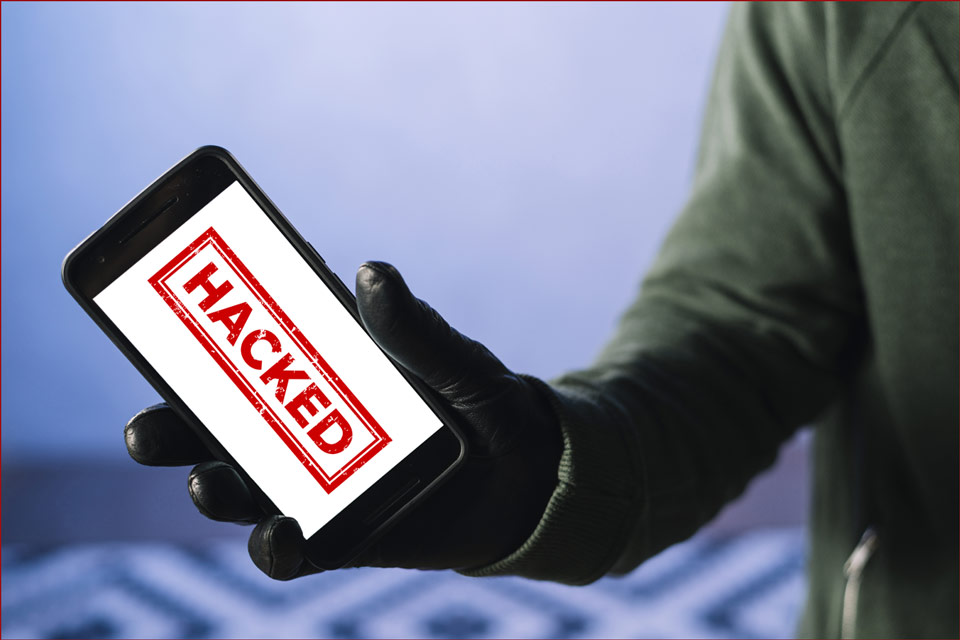
That feeling of realising your phone might be hacked? You scramble to change passwords, lock down accounts, and hope the damage isn’t too bad. For any techie, these stories all too often. People coming in for help after losing social media accounts (commonly to foreign hackers), having money stolen from their bank accounts, or even having private photos and credential documents exposed (often from unclear origins). And the question we always ask is: “How did they get into your phone?” Frustratingly, the answer is usually… “I don’t know.”
That’s why we decided to write this guide on how to prevent hackers from accessing your phone. By following these simple steps, you not only take control but protect your phone from future hackers, because let’s face it, our phones are practically extensions of ourselves these days. Phones store not just personal information and financial details – your entire life on a small device. This convenience, however, makes these devices a prime target for hackers. You don’t even need to be a tech expert to keep your device safe. Simply use these practical tips to outsmart anyone trying to break in.
Strong Passwords
Walk away from the “123456,” “Jesus,” and “password.” Instead, create strong and unique passwords for every account. The password should be a combination of uppercase and lowercase letters, numbers, and symbols. Also, consider writing them down in your private notebook so you don’t forget them. It’s not advisable to use a password manager.
Two-factor authentication (2FA)
Even strong passwords can be compromised. Further enable 2FA whenever possible. This adds an extra layer of security by requiring a code sent to your phone, authenticator app or email to log in.
Download with Caution
Only download apps from trusted sources like the official app store on your phone. Read reviews and check permissions before installing anything. Be cautious of apps that ask for excessive permissions.
Stay Away from Suspicious Links
The most common way people get hacked is through malicious links, winning the iPhone 13 Pro Max. Phishing attempts are widespread. Avoid clicking on links in emails or text messages from unknown senders. If you’re unsure about a link, contact the sender directly through a trusted channel to verify its legitimacy.
Public Wi-Fi: Friend or Foe?
‘Unapenda vitu vya bure,’ but at least avoid using public Wi-Fi for sensitive activities like online banking. And if you must use it; consider using a Virtual Private Network (VPN) to encrypt your data.
Additionally, turn off Wi-Fi when not in use; this reduces the window of opportunity for hackers to sneak into your phone.
Related Stories: Best Budget Phones in Uganda 2025 – New Smartphones Under UGX 500000
Related Stories: How to Use Text-to-Speech Features in Google Chrome, Edge, Safari & Firefox
Keep Your Phone Software Updated
Yes, keep your phone updated with the latest operating system (OS) and Apps, as updates often include security patches. Enable automatic updates whenever possible to ensure you always have the latest protection.
Be Mindful of Bluetooth
It may sound like a minor issue, but it’s crucial, especially for iPhone users: keep Bluetooth off when not in use. Hackers can exploit Bluetooth connections to steal data.
Use App Permissions Wisely
Regularly review the permissions granted to your apps. Some apps request access to data and features they don’t need. Limit access to only what is necessary for the app to function.
Secure Your Lock Screen
Use a strong PIN, password, or biometric authentication (e.g., fingerprint or face recognition) to secure your lock screen. Avoid simple patterns or easily guessable codes.
Related Stories: ChatGPT 1-800 Number: Outperforms Meta AI with WhatsApp Calls & Messaging in 2024
Related Stories: Information Websites Collect When You Visit and How It Is Used
By following these simple tricks, you can significantly reduce your risk of falling victim to phone hackers. Remember, a little caution goes a long way in protecting your valuable data and privacy. Stay vigilant, stay updated, and keep your phone secure.